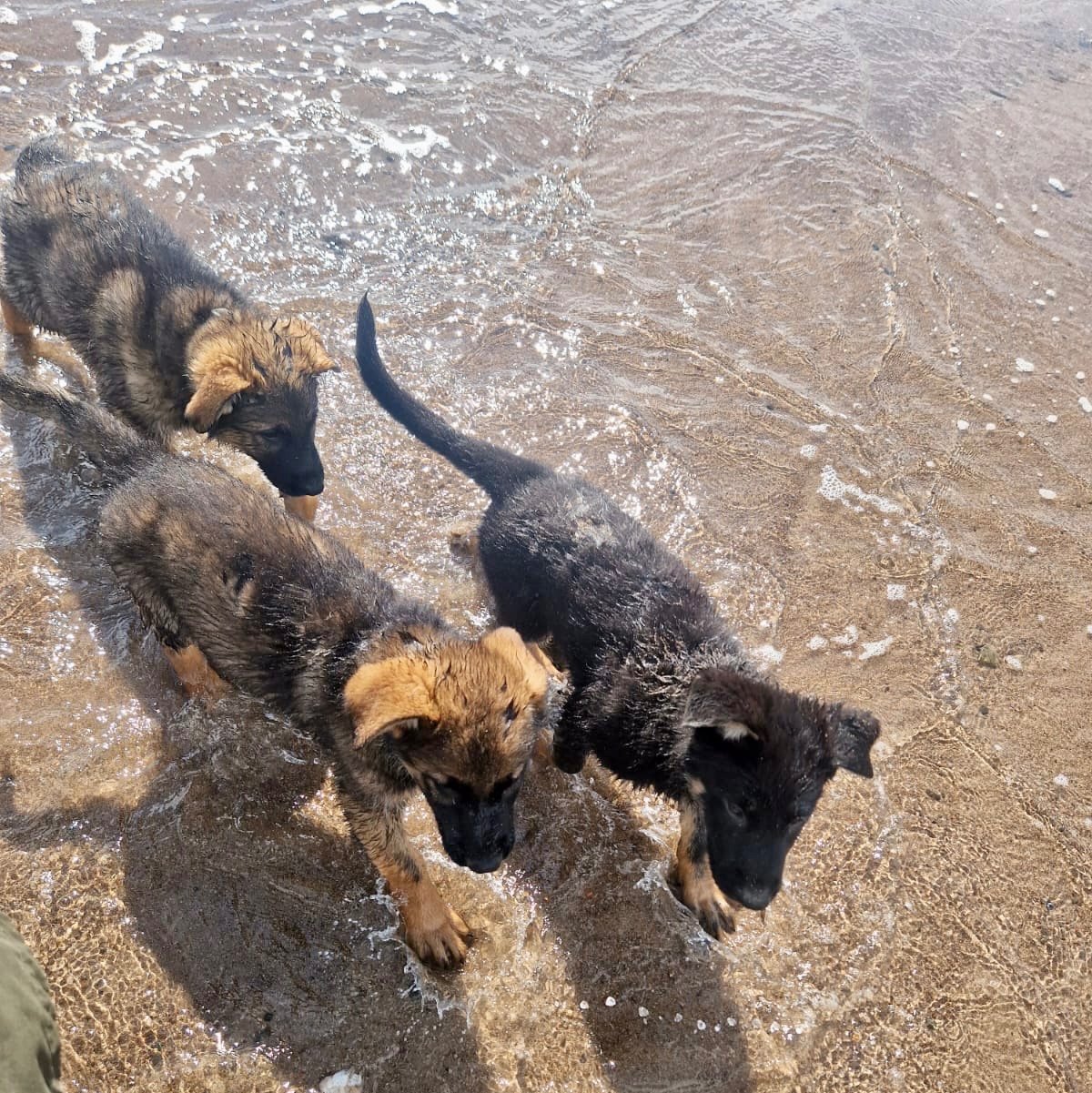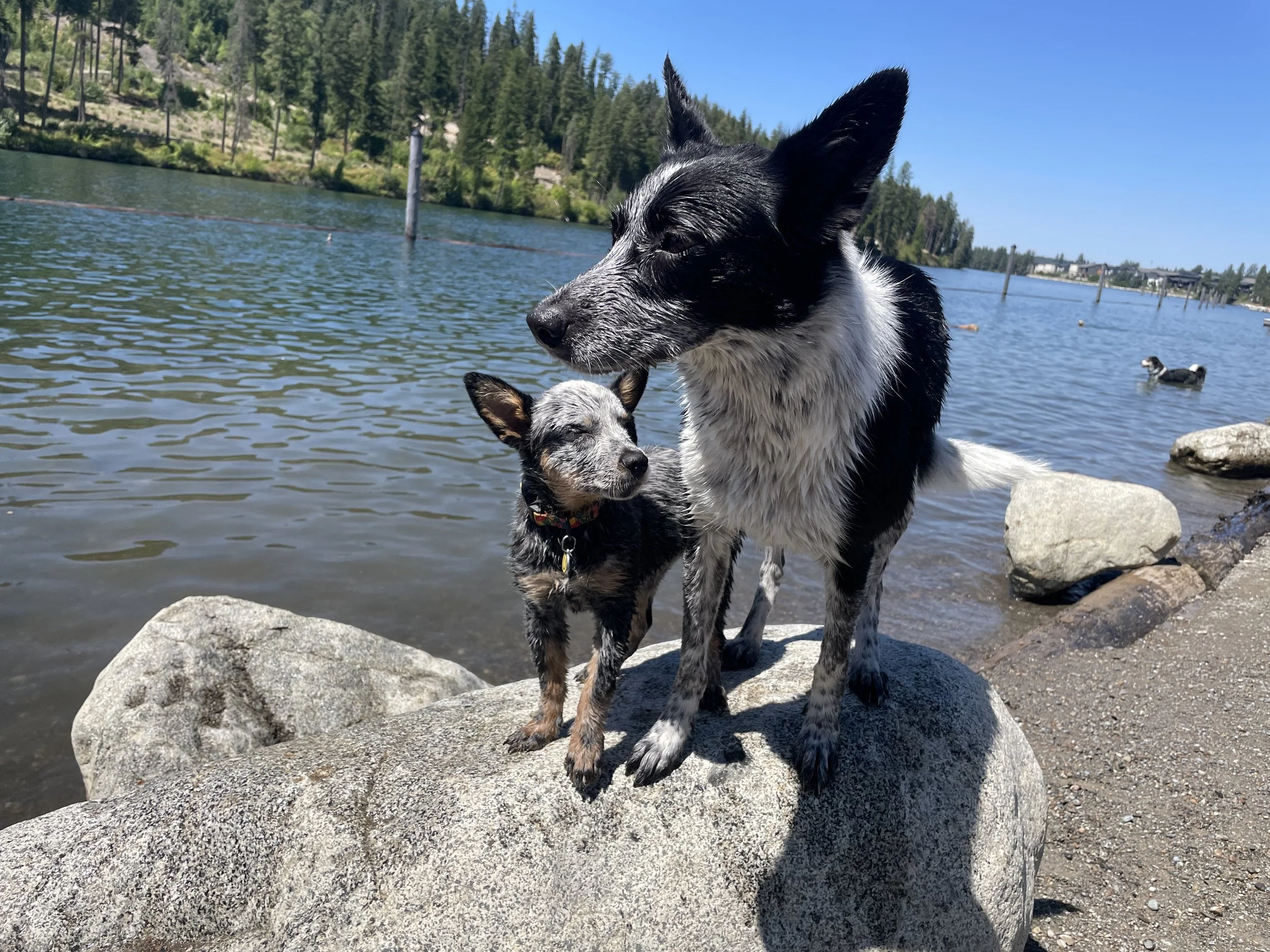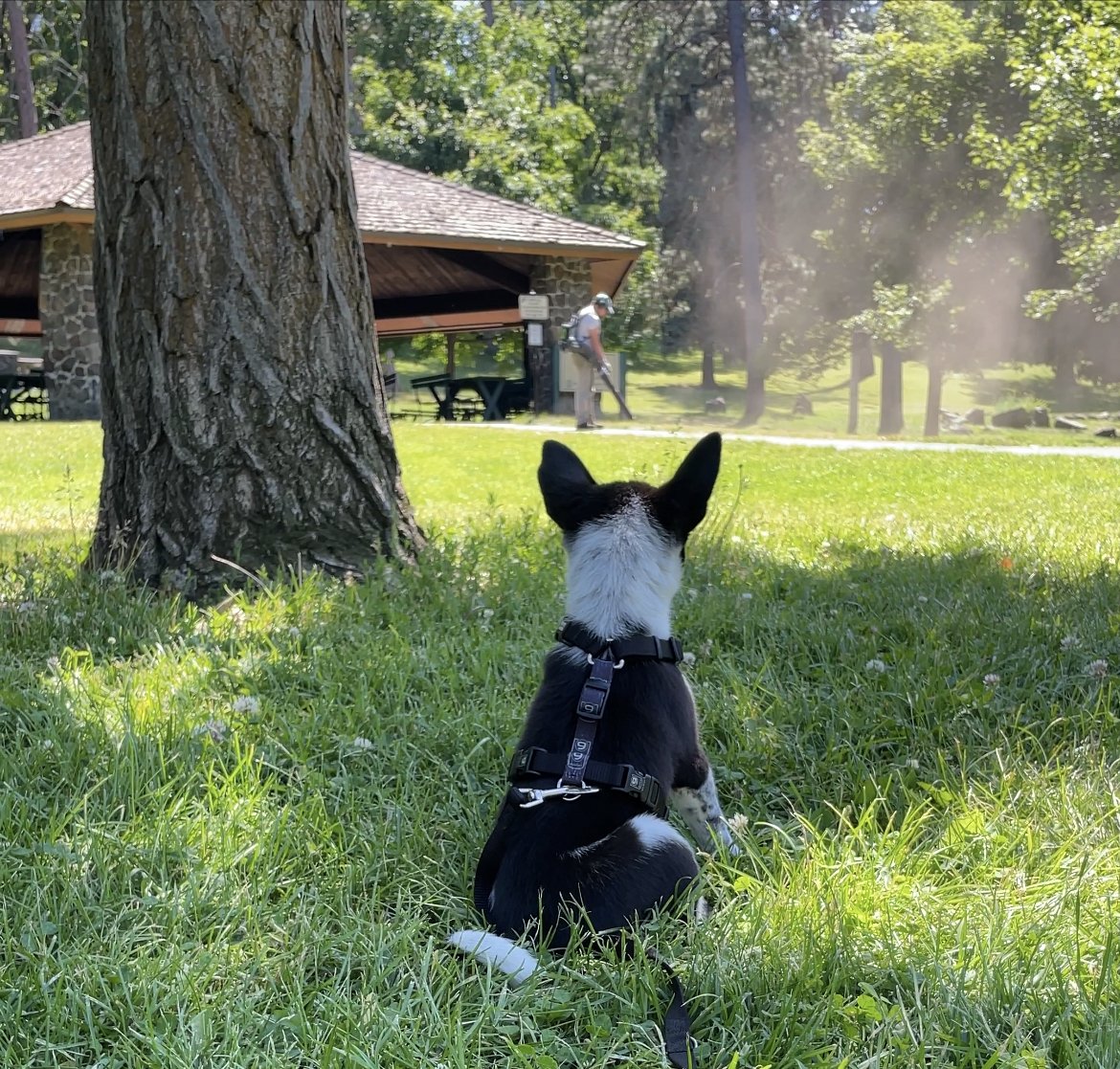Puppy Socialization
If you have a puppy, you've likely heard something about socialization. But what does it mean to socialize a puppy, why is it so important, and when should you start? Surprisingly, despite its importance, most puppy owners get this wrong. More and more over the last decade, I’m seeing increased fear-mongering around socialization, and as a result, significantly more fearful and under-socialized puppies. It used to be very natural and commonsense to socialize puppies. No one thought twice about it - and we had fewer behavior problems.
WHAT IS SOCIALIZATION
Basically, socialization is how we teach our puppies how to appropriately behave in, and cope with, the human world. Think of socialization as stress inoculation. We teach them about our human-centric world by exposing them to all the things they’ll encounter throughout their life - cars, new people, kids, babies, other dogs, cats, livestock, bikes, vacuums, scooters, hair dryers, lawn mowers, etc. This ensures that when they see these things as adult dogs, they’ll view them as no big deal.
WHY IT'S BENEFICIAL
The biggest reason to socialize a puppy is preventing behavior problems in adulthood. Socialized puppies are far less likely to have behavior problems as adult dogs, like aggression, reactivity, and fearfulness. Socialized puppies are more likely to be well-adjusted, confident, social dogs than their under-socialized counterparts.
From a neurobiological standpoint, socialization actually changes the brain by increasing the number of dendritic spines on the nerve cell, making sure that the nerve cell grows and increases the number of neural connections. Without socialization, the cortex actually shrinks. This is irreversible. There are more dendritic spines and neural connections in the brain of a socialized puppy.
WHEN TO SOCIALIZE
8-week-old Oak at the beach with his littermates - great socialization by the breeder!
NOW!
Between 3-12 weeks. Puppies have a 9-week period of time in their development when their brains are most open to new things. The rapidly developing puppy brains have an abundance of neurons to make quick neural connections. This period is called the socialization period, and it begins at 3 weeks when their eyes and ears open and ends at about 12 weeks when those extra neurons begin to disappear.
One study showed that puppies gently handled daily from birth to 8 weeks behaved more calmly than puppies not handled. It's clear that very young puppies receive long-term benefits from appropriate handling. In addition, good breeders begin introducing their young pups to new sounds and objects and people very early on. This is why having a good breeder is really important, but even if your puppy didn't get that early socialization, there are still things YOU can do.
Veterinary behaviorist, Dr. Ian Dunbar, recommends that puppies meet 100 new people by 12 weeks of age.
WHAT ABOUT VACCINATIONS?
Many vets give really bad advice, warning puppy owners to keep their puppy isolated until 16-24 weeks when vaccines are “complete” (this term is a misnomer).
The biggest problem with this is that the socialization period ends at 12 weeks. If you choose to wait, you’ve missed the most critical period in your puppy’s development, and you can’t get this time back. Doing this puts your puppy at much higher risk of reactivity, anxiety, and aggression.
And the research doesn’t support waiting, with one 2013 study showing no increased risk of disease for puppies with incomplete vaccines.
I’ve taken my puppies all over the place, starting as early as 6 weeks. Some with no vaccines yet. None have ever gotten parvo. They did get socialized, and compared to littermates who didn’t… there’s a huge behavioral difference.
Still worried? Let’s talk about vaccines and exposure.
Olive at the dog park with a friend’s 12-week-old puppy. This is great socialization for puppy - water, new people, new dogs…
Puppies are born with maternal immunity, antibodies from mom to keep them healthy. These antibodies will start to fade away at some point - we just don’t know when because it’s different for every puppy. So if you vaccinate your 6-week-old puppy and maternal immunity is still strong, those antibodies fight the vaccine and render it ineffective. That’s why we give puppies the same shot multiple times.
Between your puppy’s natural immunity AND the vaccine they just got, they’re pretty darn covered.
Now, let’s talk about exposure. People believe that if they don’t take their puppy anywhere, they’re safe! They’re not, though. They’re still exposed. How?
at the vet - it’s where ALL sick dogs go. “But I carry my puppy,” you might say. It doesn’t matter. Your vet and staff are touching them. They’re breathing the air. They’re standing on the scale. They may be put on the floor or in a kennel in the back. AND - you are touching the floor. You are tracking viruses into your car, yard, driveway, garage, and home where your puppy does walk.
your yard. If you let your puppy outside to potty, they’re exposed. Parvo can live for YEARS in very harsh climates, and you cannot kill parvo in soil. Other animals can easily track viruses and bacteria or parasites into your yard.
If you have another dog or an indoor/outdoor cat, they are tracking stuff into the house and yard right along with you
So you can live in fear of treatable illness, or you can focus on giving your puppy the best life. Socialize early and often. Support their immune system with real food. Raise a confident, social dog.
“While puppies’ immune systems are still developing during these early months, the combination of maternal immunity, primary vaccination, and appropriate care makes the risk of infection relatively small compared to the chance of death from a behavior problem. ”
Puppy Olive watching someone use a leaf blower at the park - this is socialization!
HOW TO SOCIALIZE
take your puppy out to new places - let them walk and interact with people and friendly dogs
have a puppy party at your house for friends and family to come meet your new puppy.
take your puppy to the vet just for pets and treats from vet staff
go sit outside at a dog-friendly coffee shop or restaurant and let your puppy lie at your feet and watch people go by
take your puppy to a variety of locations:
farmer's markets
walking trails
parks - city parks, state parks, busy parks, quiet parks
dog-friendly stores and restaurants
set up playdates with dogs you know are friendly and vaccinated (I run playgroups for clients - these are perfect for puppies)
take your puppy on short car rides to get them used to the car
create puppy confidence courses with various obstacles for your puppy to explore
WHAT SOCIALIZATION IS NOT
meeting every dog
wild, out of control play
meeting every person
dragging your terrified puppy up to things
IMPORTANT NOTES ABOUT SOCIALIZING
Socialization should continue throughout your dog’s life. It’s less impactful after 12 weeks, but will still have benefit.
Socialization is not training. You don’t need to reward things.
Many people recommend carrying your puppy or using a stroller as a way to keep them “safe.” This is certainly better than nothing, but letting them walk is far better. It allows your puppy to choose where to go, whether to approach or not approach, whether to just stay put and watch… it builds more confidence, too. I personally let my puppies walk everywhere and chose not to carry them around.




